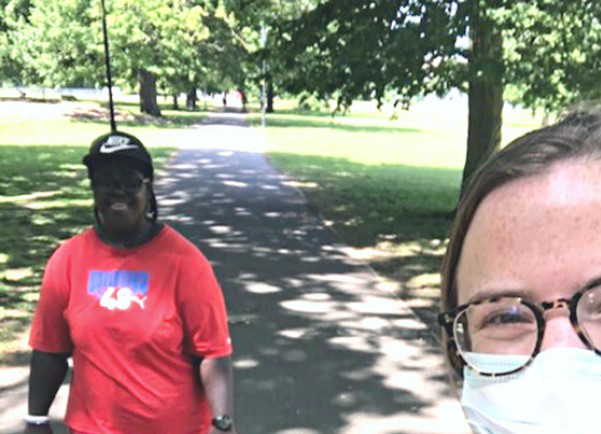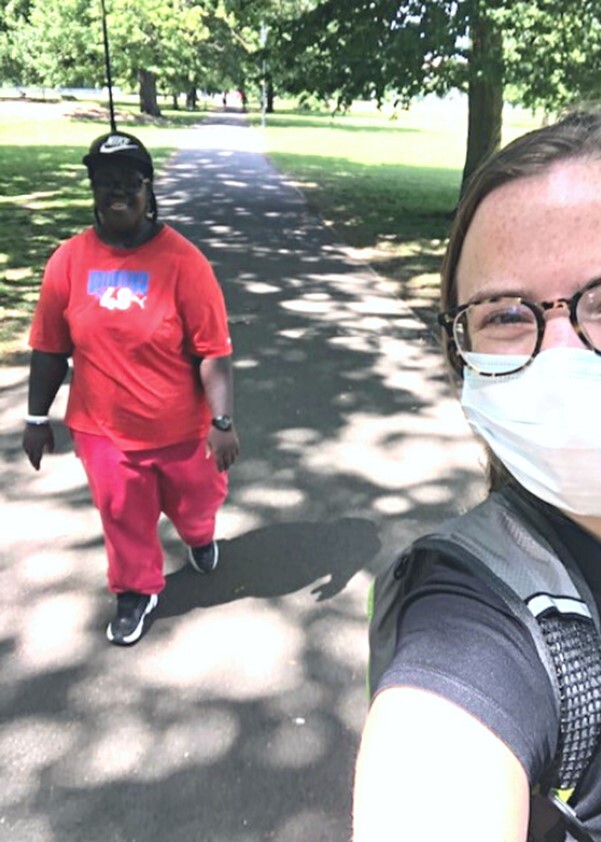
When the COVID-19 pandemic hit, many of London’s most vulnerable citizens found themselves even more at risk than before. Ongoing lockdowns compounded isolation and reduced access to support services. Valuable lifelines disappeared.
The sudden loss of face-to-face services was particularly hard for the many adults with learning disabilities, autism, physical disabilities and mental health needs whose wellbeing depends on accessing support services.
Here’s how one of our partner grassroots organisations responded to the crisis using funds from the National Emergency Trust COVID fund we administered.
Share’s Befriending project
Share works with disabled people who need extra help and support to realise their dreams and aspirations. A centre for learning and wellbeing, its aim is to help people live independent, happy, and healthy lives, and make their own choices. Founded in 1972 and based in the London Borough of Wandsworth, Share works across London supporting between 120-250 residents from Lambeth, Southwark, Croydon and Merton each year. The focus is on what people can do, not what holds them back.
This can-do attitude was evident in their Befriending project. Launched during lockdown to help relieve isolation, the outreach service involved volunteer befrienders visiting people near their homes for 1-2 hours per week to go for a walk, a bike ride or a coffee, do some shopping or just have a chat. Befrienders were carefully matched to those with similar interests, offering support and friendship.
The aim of the outreach project was to:
- Encourage communication, helping people improve their social skills and feel more self-confident
- Motivate people to get more exercise by getting out in the fresh air
- Help people feel less lonely by making friends and having someone trusted to talk to
- Support people in exploring their local communities
Shanice’s story
When the first lockdown happened, Shanice and her family faced a particularly tough time. Some family members have health issues so needed to be extra careful about going out. Shanice has lots of energy and is very active so she found staying at home difficult. Finances became tight when a family member lost their job due to lockdown. On top of this, the family’s oven broke so they were unable to cook proper meals.
Identifying that Shanice didn’t like attending Zoom classes or talking to people on the phone, Share supported her with weekly, socially-distanced outreach sessions and the donation of a sports kit. This enabled her to get some exercise outside whilst allowing her family some respite. Shanice now meets regularly with her befriender, Dot, for a walk and to play football. Shanice has talked to Share staff about her experience of befriending, “I like Dot, I'm looking forward to seeing her this weekend.”

The family also benefitted from Share’s community meals scheme, receiving pre-cooked meals to heat up in the microwave, saving money and helping them to shield. Shanice’s favourite class at Share is catering, so she was delighted to return to the Share kitchen in the summer of 2020 and be part of the catering team who cooked and packaged the meals. After the meal delivery programme ended, Share supported the family to buy an oven so that they could cook their own meals again.
“2020 was a very hard year for us all, some more than others but nevertheless a struggle. We just wanted to say thank you for looking after Shanice through this pandemic, and also me and our mum on top of that.”Shanice’s sister
